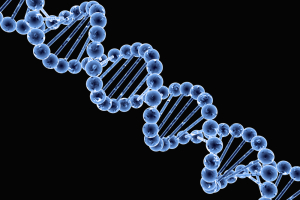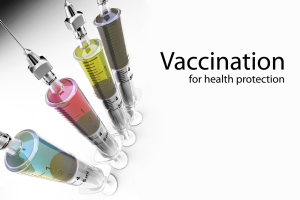An interesting study regarding inherited cancer was done at the epidemiology department of the Karolinska Institute in Sweden where more than 2 million families and their more than 5 million offspring were surveyed for the presence of cancer.
This study was done to get an idea regarding the potential genetic transmission of different cancer types (Ref. 15). Here are the findings: no inherited risk was found for squamous cell skin cancer and myeloma.
An increased risk of two-fold or more (sibling to offspring ratio) was found for the following cancers: stomach, kidney and bladder cancer, hormone gland cancers, colon, testicular, prostate cancer and leukemia.
Breast cancer had a very high genetic inheritance with a frequency of 10-fold or more when one parent and one sibling were affected. A surprise finding of the study was that there are cancer connections between rectum/skin, breast/hormone glands and lung/hormone glands. These studies, which are based on a large data base will help cancer researchers throughout the world to pinpoint the cancer genes and hopefully help to develop possibly a cancer vaccine (thanks to www.cancer.gov for this link) for people with susceptibility. The idea here is that people with a higher susceptibility for cancer need more help in terms of the immune system fighting it before it takes off and metastasizes.
Cancer vaccines
An example regarding a cervical cancer vaccine is the human papilloma virus vaccine, Gardasil, which is now well established. Another example are hepatitis A and B vaccines that have been around for some time and have reduced the risk of chronic hepatitis, cirrhosis of the liver and the resulting risk of liver cancer in this patient group.
The idea of cancer vaccines has become a reality and there likely will be more cancer vaccines in the future. This will be part of the regular treatment possibilities for the cancer specialists.
Another useful area is the use of specific vaccines (for instance the measles vaccine) for curing multiple myeloma.
References
1. JK McLaughlin et al. Int J Cancer 1995 Jan 17; 60(2): 190-193.
2. GN Wogan Semin Cancer Biol 2000 Jun 10(3): 201-210.
3. L Garfinkel et al. Stat Bull Metrop Insur Co 1999 Jul-Sep;80(3): 23-32.
4. G Torres-Mejiha et al. Int J Cancer 2000 Sep 15;87(6): 869-873.
5. M Feuring-Buske et al. Ann Hematol 2000 Apr 79(4): 167-174.
6. RJ Kreitman et al. J Clin Oncol 2000 APR 18(8): 1622-36.
7. SA Rosenberg et al. Ann Surg 1998 Sep 228(3): 307-319.
8. K Fujita et al. Clin. Cancer Res 1995 May 1(5): 501-507.
9. J van der Zee et al. Lancet 2000 Apr1; 355(9210): 1119-1125.
10. H Ge and J Huang J Surg Oncol 2000 Jul 74(3): 193-195.
11. P Hillemanns et al. Int J Cancer 2000 March 1; 85(5): 649-653.
12. K Moghissi et al. Eur J Cardiothorac Surg 1999 Jan 15(1): 1-6.
13. Cancer: Principles &Practice of Oncology.4th edition. Edited by Vincent T. DeVita, Jr. et al. Lippincott, Philadelphia,PA, 1993. Chapter 70:”Unsound methods of cancer treatment”, page 2734 -2747.
14. Cancer: Principles&Practice of Oncology. 5th edition, volume 1. Edited by Vincent T. DeVita, Jr. et al. Lippincott-Raven Publ., Philadelphia,PA, 1997. The data from the tables on p. 236-237 were condensed and the figures rounded off to the nearest full number.
15. C Dong et al. Int J Cancer 2001 Apr 1;92(1):144-150.








